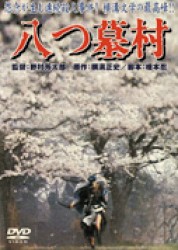Full Description
Investigative Creative Writing is Mark Spitzer's lively and original treatment of creative writing practice and teaching within a college/university environment. The author presents an experiential, discovery-based approach that builds on teaching theories of established writers and scholars as well as current innovators and his own extensive experience as a creative writer, editor, and university academic.
Teachers, students, and writers in the fields of English, literary studies, composition and rhetoric, applied linguistics, and education should find this book, written by a prolific creative writer and enthusiastic writing teacher, not only enlightening and engaging, but also useful. Investigative Creative Writing can be envisioned as a practical tool illustrating ways of overcoming hurdles that impede writers from venturing into unknown territory where discoveries take place. In addition to assisting in developing and honing cutting-edge creative writing programs, this book will be helpful for writers in getting to the meat of the matter, generating narratives and dialogue, identifying arguments, fleshing out character traits, discovering direction for plots, and developing a host of other skills that foster and embolden a literary freedom of the imagination. The text includes examples of teaching techniques and assignments from the author's classes which are intended for instructors to adjust according to their needs, along with extensive discussion of his own practices of investigative creative writing and experience in teaching and developing writing curricula.
Contents
Series Editor's Preface
Introduction Discover Creative Writing Superpowers through Investigative Teaching Techniques
Part 1 Discovery-Oriented Basics
Chapter 1 Teaching Students to Show Not Tell
Chapter 2 The New Weird: What Happens to Creative Writing When the Truth Is Stranger than Fiction
Chapter 3 The Ten Commandments of Incorporating Dialogue: For Those Seeking to Inform the Unprepared, the Disengaged, and the Thoroughly Confused
Part 2 Investigative Theatrics
Chapter 4 Multiple-Personality Pedagogy: A Hybrid Teaching Tool for Varying Voice in the Classroom
Chapter 5 Extreme Puppet Theater as a Tool for Writing Pedagogy
Chapter 6 May the Farce Be with You: Reflections on Extreme Puppet Theater as a Vehicle towards Something Else
Chapter 7 Pointers for Performance of Poetry and Prose
Part 3 Programmatic Discoveries
Chapter 8 How to Sell a Creative Writing Program Based on the Question "Why Study Creative Writing?"
Chapter 9 Ten Recommendations for Growing Creative Writing Programs
Chapter 10 Dealing with Diverse Issues in Creative Writing Programs: A Polemic
Part 4 Eco-Investigations
Chapter 11 Introducing "Eco" to the Homies: A Liberal Professor's Activist Approach
Chapter 12 Experience Investigative Eco-Fiction
Chapter 13 From Wild People to Wilderness: An Education in Investigating Monsters in Our Midst
Part 5 Experiential Exercises
Chapter 14 Seven Investigative Group Exercises
Chapter 15 Four Investigative Exercises for Individual Discovery
Chapter 16 Six Investigative Homework Exercises for Encouraging Literary Citizenship






